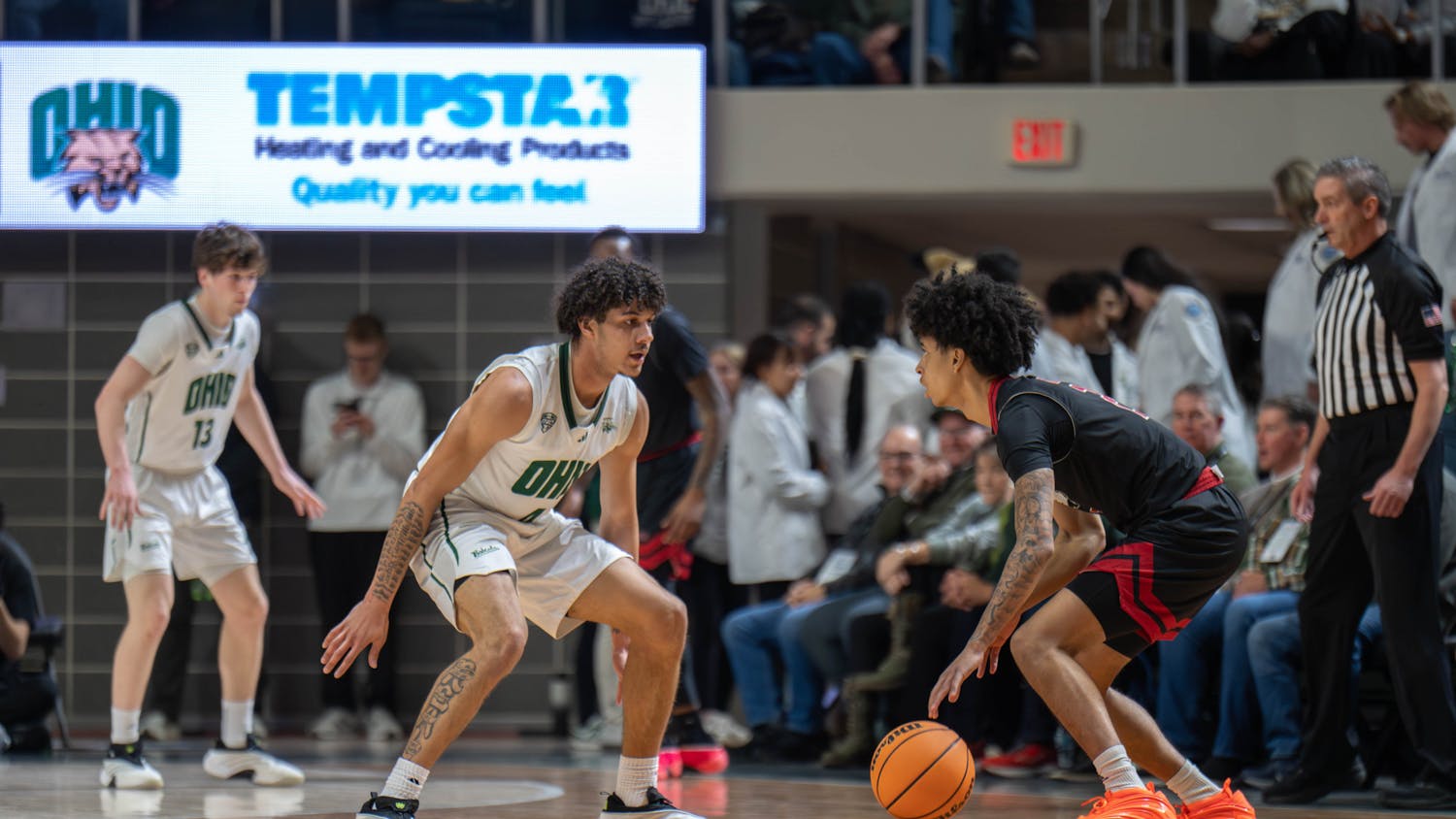Gillian Ice, special assistant to the president for public health operations, has been helping Ohio University address the COVID-19 pandemic head-on since her appointment in August 2020.
Ice’s work includes overseeing case management, coordinating the university’s COVID-19 response and communicating with the OU and Athens community about the status of infections and health initiatives.
The Post sat down with Ice to discuss the university’s plan for mitigating COVID-19 infections this spring and recommendations for students as they navigate the ongoing pandemic on campus.
The Post: What has the university maintained in its COVID-19 operations this semester, and is there anything new being implemented?
Ice: The same measures that we used for delta, alpha, beta, the original strain, work against omicron when applied consistently. We've always taken a multi-layered approach … We continue to do the testing, which is really important, so we can rapidly isolate and quarantine people. We did increase … and slightly modify our mask requirement. We know that because omicron is so transmissible, the higher quality the mask, the more likely it is to prevent transmission. We continue to do contact tracing, rapid isolation and quarantine. We're trying to emphasize distancing where possible, avoiding large crowds, that kind of thing. So, it's the same measures … but we're trying to tweak so that we can really double down on those same prevention measures, for sure.
TP: How do you feel in terms of preparation and expectations for this coming semester?
Ice: That's a tough one to answer, actually. I mean, in some ways, I've been at this now for, I don't know, 16 months or so. So, at least I have the experience to lean on, and we've learned from previous surges what works (and) what doesn't. And not only I, but my whole leadership team and our contact tracers — we know a lot more — so I feel a little bit more comfortable going into it. The cases right now, we are already having a very large influx of cases. The large majority of them haven't left home yet, and they're reporting their positive tests, which is great, so that we make sure that they come back when they're supposed to and not sooner. In relative to (the) fall, that's a much higher number of people, as we anticipated. But it's a little overwhelming to just look at the sheer volume of people who are affected by COVID right now.
TP: Have staffing levels increased at all, especially with the expectation of more contact tracing this semester?
Ice: We are down some staff just because people left for permanent jobs. So, what we've done is we have .. our “strike team.” These are teams that come in, particularly around surge capacity, and we've asked them to expand to increase their hours. We're reaching out to units on campus that have staff that maybe are willing to work some extra hours to help us out … and we're also hiring some additional part time folks to do that. We've also taken some steps to process cases — what we call “surge processing” — so we can move a little bit more quickly. So, as soon as somebody submits an incident report or are aware that they're affected by COVID, we send them a letter and … with immediate instructions and with the knowledge that there might be a delay before we can reach out to them. But at least it gives them immediate instructions. So, a bunch of internal staffing reallocations and so forth so that we can work as efficiently as possible.
TP: Has the university had any plans or expectations for more in-person events this spring?
Ice: The plan is to continue the events that we had planned already, with a constant eye on the situation and looking to, wherever we can, change those events so that they're a little bit safer. I've really encouraged, particularly Housing and Residence Life … to really think about what kinds of ... outdoor things can we have people do because those are safer, and I'm hoping they pick up the challenge. It is cold, but there's some amazing hiking around Athens County, right. There's some great things that you can do outside, that if you can layer up appropriately, are safer. And so, we'll be trying to emphasize that kind of thing as well.
TP: What is testing availability looking like for this semester?
Ice: Because we anticipate a lot of spread on campus … we're actually amping up our testing, at least for the month of January. What we've learned from the past surges that we've had over the last 16 months or so is that they tend to last between four and six weeks with major transmission and then it drops off to a point. We don't know how omicron is gonna land, and we also have delta still circulating, so we don't know if that timeframe will hold, but we expect it to. So, the first four to six weeks, we're going to be increasing testing availability.
TP: The university said it was changing masking requirements for the Spring Semester. Do three-fold surgical masks qualify as a high filtration?
Ice: I don't think it's technically considered a high filtration, but it is allowable. We would love for people to do the KN95. Those are all the high filtration masks. But surgical masks are fine. Just be really careful to make sure that they're tight-fitting. We discourage people from using homemade masks, although you could do a surgical mask and a homemade mask together. That actually improves the fit of the surgical mask if you put the mask on top. We want students to stay in class. We want them to have their college experience and the more we do to protect each other, the better everyone is to be able to stay safe and in college, in the classroom, the whole time.





